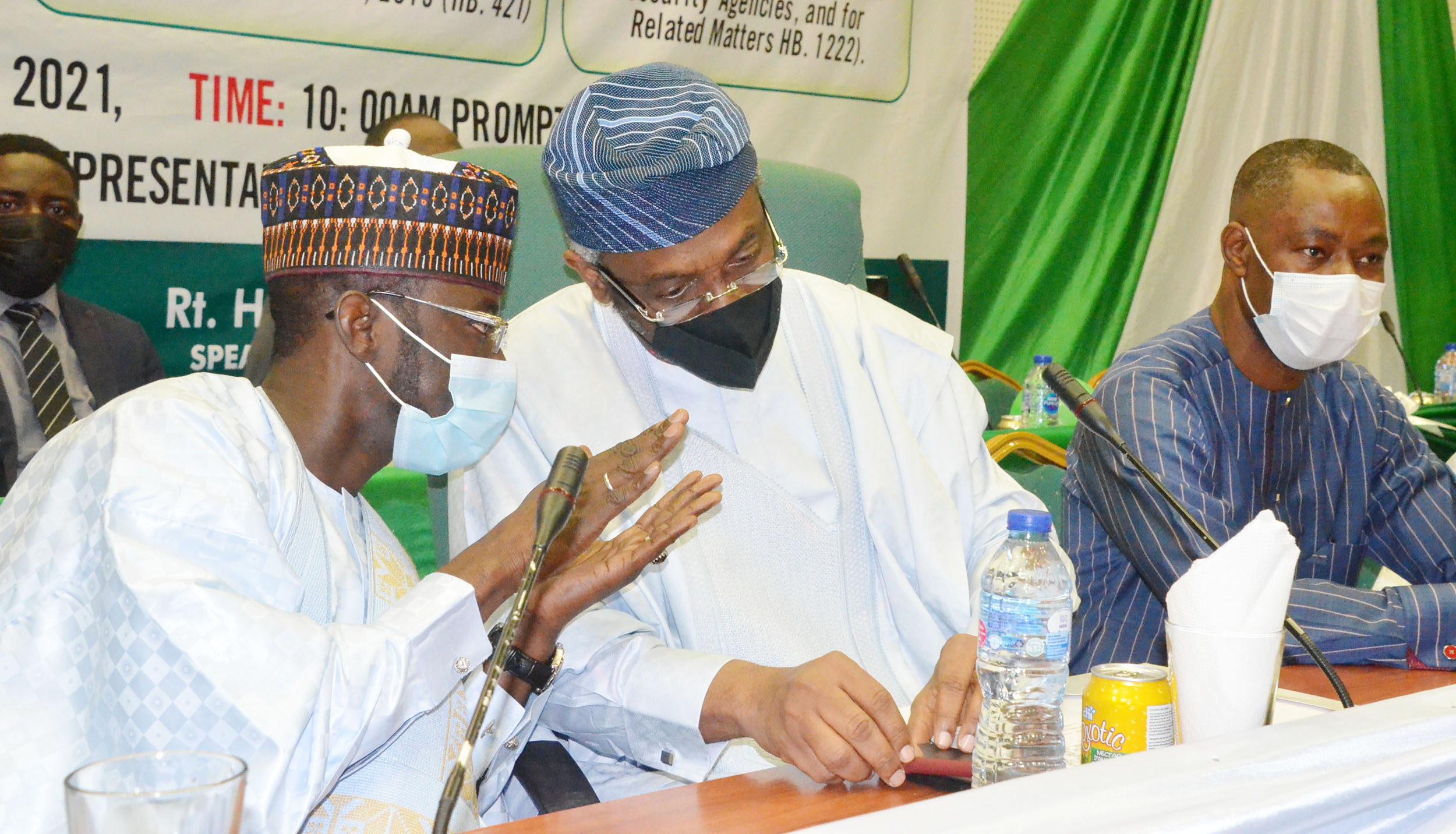Business
Reps Summon Malami, Adebayo, FIRS Over Tax Holidays

The House of Representatives Committee on Public Accounts has invited the Ministry of Industry, Trade and Investments, Niyi Adebayo; Minister of Justice and Attorney-General of the Federation, Abubakar Malami (SAN); and the Federal Inland Revenue Service (FIRS) to come and explain why some companies were not given a certificate of acceptance before being allowed to enjoy tax holidays.
The committee issued the invitation based on a disagreement between the lawmakers and the management of the Nigeria Agip Oil Company (NAOC) over the desirability of the certificate as a prerequisite for enjoying tax holiday by companies operating in Nigeria.
Chairman of the committee, Oluwole Oke, had at the investigative hearing last Friday, insisted that the certificate of acceptance was a necessity to claim capital allowances and enjoy tax holiday.
But the Divisional Manager, Tax and JV Coordination, NAOC, Oluwole Agbede, disagreed, saying the certificate is not needed due to the nature of their work.
Explaining why Total Exploration and Mobil Producing should have the certificate while Agip should not, Agbede noted that the two companies could have such a certificate for their offshore operations.
Agbede also said that Agip had three sister companies that shared the same management and the same costs as well as file transferring same transfer pricing reports.
He stated that the NAOC did not have a certificate of acceptance from the Federal Ministry of Industry, Trade and Investments to claim capital allowances from the government.
Responding to a question on why the Agip did not have the certificate, Agbede said under the Petroleum Profit Tax, the certificate was not a requirement to claim capital allowances.
Agbede explained, “We claim capital allowances based on the 20 per cent of the JV agreement that belong to us. We have a JV agreement and the NNPC is the principal partner with 60 per cent of the assets of the operation.
“The other JV partner, Oando, has 20 per cent while Agip has 20 per cent. When we incur the expenses, we distribute; and based on that, we share the percentage. Each of the partners will go back and prepare its tax return based on the share of the oil”.
Business
Agency Gives Insight Into Its Inspection, Monitoring Operations

Business
BVN Enrolments Rise 6% To 67.8m In 2025 — NIBSS

The Nigeria Inter-Bank Settlement System (NIBSS) has said that Bank Verification Number (BVN) enrolments rose by 6.8 per cent year-on-year to 67.8 million as at December 2025, up from 63.5 million recorded in the corresponding period of 2024.
In a statement published on its website, NIBSS attributed the growth to stronger policy enforcement by the Central Bank of Nigeria (CBN) and the expansion of diaspora enrolment initiatives.
NIBSS noted that the expansion reinforces the BVN system’s central role in Nigeria’s financial inclusion drive and digital identity framework.
Another major driver, the statement said, was the rollout of the Non-Resident Bank Verification Number (NRBVN) initiative, which allows Nigerians in the diaspora to obtain a BVN remotely without physical presence in the country.
A five-year analysis by NIBSS showed consistent growth in BVN enrolments, rising from 51.9 million in 2021 to 56.0 million in 2022, 60.1 million in 2023, 63.5 million in 2024 and 67.8 million by December 2025. The steady increase reflects stronger compliance with biometric identity requirements and improved coverage of the national banking identity system.
However, NIBSS noted that BVN enrolments still lag the total number of active bank accounts, which exceeded 320 million as of March 2025.
The gap, it explained, is largely due to multiple bank accounts linked to single BVNs, as well as customers yet to complete enrolment, despite the progress recorded.
Business
AFAN Unveils Plans To Boost Food Production In 2026
-

 News4 days ago
News4 days ago2026 Budget: FG Allocates N12.78bn For Census, NPC Vehicles
-

 Sports4 days ago
Sports4 days agoAFCON: Osimhen, Lookman Threaten Algeria’s Record
-

 Politics4 days ago
Politics4 days agoWike’s LGAs Tour Violates Electoral Laws — Sara-Igbe
-

 Politics4 days ago
Politics4 days agoRivers Political Crisis: PANDEF Urges Restraint, Mutual Forbearance
-

 Sports4 days ago
Sports4 days agoPalace ready To Sell Guehi For Right Price
-

 Sports4 days ago
Sports4 days agoNPFL To Settle Feud between Remo Stars, Ikorodu City
-

 Sports4 days ago
Sports4 days agoArsenal must win trophies to leave legacy – Arteta
-

 Sports4 days ago
Sports4 days agoTottenham Captain Criticises Club’s Hierarchy

